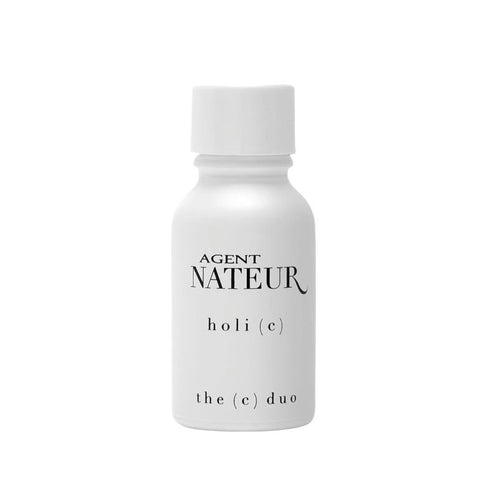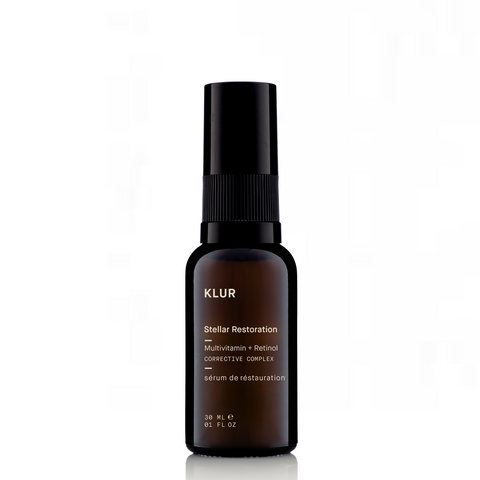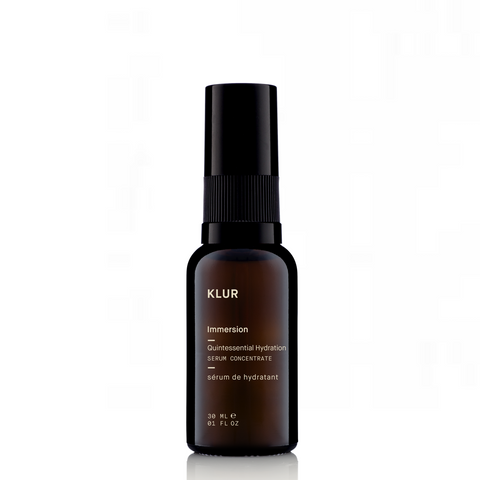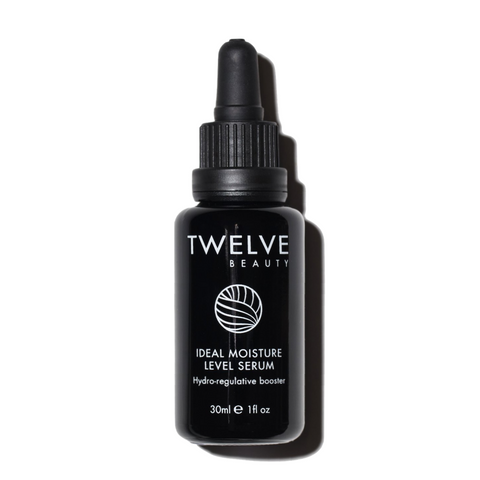Free shipping for HK orders HK$600+
Ingredients To Avoid For Acne Skin
January 13, 2021
When customers ask us how to tackle acne, the first thing we tell them is to clean up their diet (as in avoid dairy, processed sugar, alcohol, soy, and gluten, because trust us, it works), then add retinol, AHAs, BHA, PHAs, enzymes, as well as a clay mask into their routine.
Secondly, we also ask them what they are currently using on their faces. This is because the most common ingredients can actually be the culprits sometimes, thus simply removing them from your routine may already help improve your acne condition.
____________________________________
Acne-Causing Ingredient ① L’Ascorbic Acid
Our skin has a natural pH of around 5.5, whilst l’ascorbic acid, a potent form of vitamin C, has to be at a pH level of 3 for it to stay stable, otherwise it will oxidize very rapidly, rendering the product useless. By using such an acidic product everyday morning and night, the skin’s pH level will be affected, the lipid barrier will be damaged, and the skin’s delicate microbiome of bacteria that maintains a proper balance necessary for a disease-free environment will be disrupted. When this happens, the skin gets sick in the form of acne and dermatitis, amongst many others.
We had quite a few customers with acne issues who were using l’ascorbic acid serums, and as soon as they stopped using it upon our recommendation, their acne cleared up.
But then what should we use as a substitute? Look for vitamin C derivatives like Sodium Ascorbyl Phosphate or Ascorbyl Glucocide. The former is a stable, water-soluble form of vitamin C that functions as an antioxidant, skin brightener, collagen stimulator, and antimicrobial——in fact, research has shown that it can reduce acne with continued use! Whilst, the latter, also a water-soluble derivative of vitamin C, is much more stable and gentle than l’ascorbic acid, and thus can be used on all skin types for its antioxidant and skin-brightening properties.
Product Recommendation
AGENT NATEUR
holi(c) The C Duo <- Click to shop
Product Recommendation
KLUR
Stellar Restoration Corrective Complex <- Click to shop
____________________________________
Acne-Causing Ingredient ② Heavy Moisturisers (Occlusive Ingredients)
Occlusive ingredients physically block trans-epidermal water loss by forming a hydrophobic film on the skin surface and within the superficial interstitium between corneocytes. These include ingredients such as petrolatum, lanolin, mineral oil, coconut oil, beeswax, and shea butter. Problem is, they can stick dead skin cells to the skin’s surface, trap oils and dirt inside, clog pores, create an oxygen-free environment that acne bacteria love, kill off ‘friendly’ bacteria that keep skin healthy, resulting in acne.
In fact, a lot of dermatologist and doctors agree that heavy moisturizers, which artificially saturate the skin surface with moisture, disrupts the skin’s natural hydration function and causes it to over-rely on them for moisture and become ‘lazy’. The truth is, in most cases, the skin is capable of maintaining its own hydration levels. By over-moisturizing our skin surface sends a signal to its water reservoirs to halt production of our skin’s natural hydrators glycosaminoglycans and natural moisturizing factors. This would lead to the thinning of our epidermis, and a decreased ability in moisture retention, and in the end, creating a downward spiral of always needing heavier moisturizers.
So instead of using heavy moisturizers with occlusive ingredients, let your skin do its work by using hydrators, lighter moisturizers or oils. Yes, switching back to lighter formulas may feel insufficient at first, but once the skin’s natural function of producing its own glycosaminoglycans and natural moisturizing factors gets back on track, the skin will feel less dry or tight, and better yet, with fewer acne.
Product Recommendation
MARIE REYNOLDS LONDON
Reson8™ <- Click to shop
Product Recommendation
ANFISA
LILOU Radiant Hydra Balm <- Click to shop
____________________________________
Acne-Causing Ingredient ③ Face Scrubs
Facial scrubs contain particles such as microbeads, crushed walnut shells or other similar substances to physically remove the top layer of the skin to make it feel smoother. Here is the truth, face scrubs will not improve acne; in fact, it can make the problem worse.
First of all, the friction in the process may irritate your already-inflamed skin. Secondly, it may also damage the skin barrier by removing healthy skin cells and causing micro-tears, and a damaged skin barrier simply cannot properly retain moisture, nor can it keep bacteria and allergens out, leading to more acne. Thirdly, such friction can also contribute to acne scars, as well as post-inflammatory hyperpigmentation, which can take weeks, if not months, to improve. And last but not least, face scrubs cannot penetrate pores and unclog them, which means they won’t actually do anything for acne or blackheads/whiteheads!
On the other hand, enzymes, AHAs, BHA and PHAs, speed up cell turnover and help loosen dead skin cells, so they naturally slough off. As long as the formulation and concentration are right, not only are they much more effective and are suitable for acne-prone and sensitive skin, over time they will also increase collagen and hyaluronic acid deposition and synthesis within the dermis, so the skin will appear more plumped, smooth and bouncy!
You may also want to use a clay mask twice a week, that can gently remove dirt, oil & pollutants accumulated in the pores, reduce blackheads & acne, whilst delivering hydration and nutrients to calm skin.

Product Recommendation
KLUR
Supreme Seed Delicate Purification Mask <- Click to shop

Product Recommendation
OUMERE
No. 9 Exfoliant <- Click to shop
____________________________________
Acne-Causing Ingredient ④ Sulphates
Sulphates, such as sodium lauryl sulfate (SLS) and sodium laureth sulfate (SLES), are cleaning ingredients that produce foam, and can be found in conventional cleansers, shower gels, shampoos, and even toothpaste. They cleanse the skin for sure, but they also strip the skin of its natural oil, and can damage the skin’s lipid barrier, thus weakening its defence ability as well as allowing harmful bacteria and pollutants to enter the body through the skin, which can then lead to irritations, inflammations and redness.
Worse yet, it is also believed to be a contributor to acne, eczema and dermatitis, because not only is it comedogenic, it also has high alkalinity, which allows bacteria such as p.acnes to thrive.
In fact, it is also believed that for those with cystic acne around the mouth and chin, using toothpaste with SLS or SLES might be one of the contributing factors.
Remember, whether or not you have acne, cleansing should always be gentle, and therefore a non-foaming, gentle cleanser is always recommended.
Product Recommendation
AGENT NATEUR
acid(wash) Lactic Acid Brightening Cleanser <- Click to shop
Product Recommendation
TWELVE BEAUTY
Purifying Cleansing Beauty Cream <- Click to shop
____________________________________
Acne-Causing Ingredient ⑤ Very Low Molecular Weight Hyaluronic Acid
Thanks to its properties in holding up to 1,000 times its weight in water, hyaluronic acid, a humectant, can pull water from the environment to the surface of the skin. It also strengthens and fortifies the hydrolipic barrier to keep water locked in.
Natural hyaluronic acid has rather large molecules that mainly sit on top of the skin, which is why you often feel some sort of tackiness with a hyaluronic acid serum, or even experience piling when used with other products. So a lot of brands breakdown the molecular to make it more penetrable. However, when they are broken down into very low molecular weight ( ≤ 25 kDA), it can potentially carry bacteria and other unwanted ingredients more deeply into the skin. If you have compromised skin, this might be bad news, as that could mean blemishes, redness, irritations, and inflammations.
So while hyaluronic acid is a great ingredients, avoid products that promote itself as having nano or ultra low molecular weight sized hyaluronic acid, as they are inflammatory and do more harm than good.
Product Recommendation
KLUR
Immersion Serum Concentrate <- Click to shop
Product Recommendation
TWELVE BEAUTY
Ideal Moisture Level Serum <- Click to shop
____________________________________
Acne-Causing Ingredient ⑥ Isopropyl Ingredients
Isopropyl linoleate, isopropyl isosterate, isopropyl lanolate and isopropyl myristate, are texture enhancers, penetration enhancers and emollient ingredients that are often found in serums, moisturizers, and even eye creams. They are however highly comedogenic, so while they are believed to not affect already inflamed acne, they can lead to clogged pores and thus acne.
In short, avoid them if your skin is prone to acne and clogged pores, or if you are prone to having milia.
Also in The Journal

The Hidden Culprits of Skin Aging: Autophagy Decline and Zombie Cells
January 07, 2026
Don't just mask aging—reverse it. Learn how clearing Senescent Cells and restarting Autophagy creates lasting youthful skin.

The Anti-Aging Gold Standard: How Retinol Reshapes The Skin
November 12, 2025
Learn why retinol is the gold standard for anti-aging, how it works, what similar ingredients exist, and some common myths and misconceptions.

The Gut-Skin Connection: The Path to Healthy Skin
October 26, 2025
Acne, eczema, rosacea, and sensitivity can all be linked to the gut health, and even gluten? Learn all about the connection between the gut and the skin.
+Recent Articles
-
The Hidden Culprits of Skin Aging: Autophagy Decline and Zombie Cells
January 07, 2026
-
The Anti-Aging Gold Standard: How Retinol Reshapes The Skin
November 12, 2025
-
The Gut-Skin Connection: The Path to Healthy Skin
October 26, 2025
-
The Secret to Reversing Skin Aging! How Growth Factors & Peptides Help Turn Back the Clock
October 13, 2025
-
The Best Ways and Times to Take Different Supplements
August 19, 2025
-
Luxury vs. Budget-Friendly Skincare Products——What Are Their Differences?
August 06, 2025
-
How to Prevent and Improve Post-Inflammatory Hyperpigmentation (PIH)
July 10, 2025
-
How to Prevent and Improve Post-Inflammatory Erythema (PIE)
July 08, 2025
-
The Ultimate Cleansing Guide to Improve Skin Conditions
June 03, 2025
-
Do You Have Sugar Face? How Does Sugar Affect Our Skin and Appearance?
May 20, 2025
Subscribe to get skincare knowledge delivered to your inbox!










